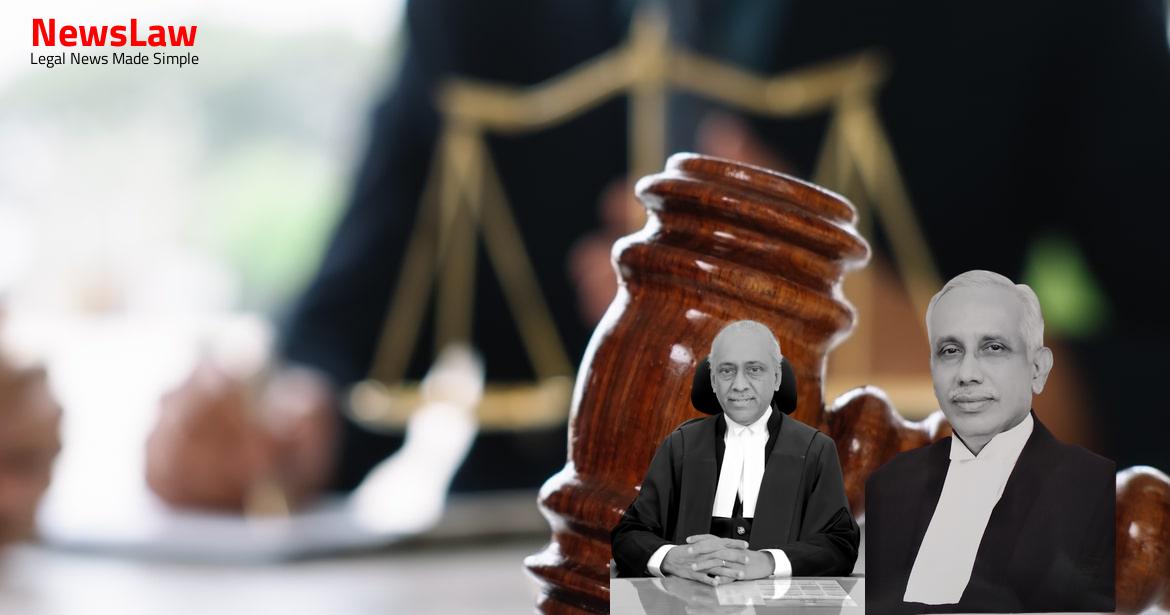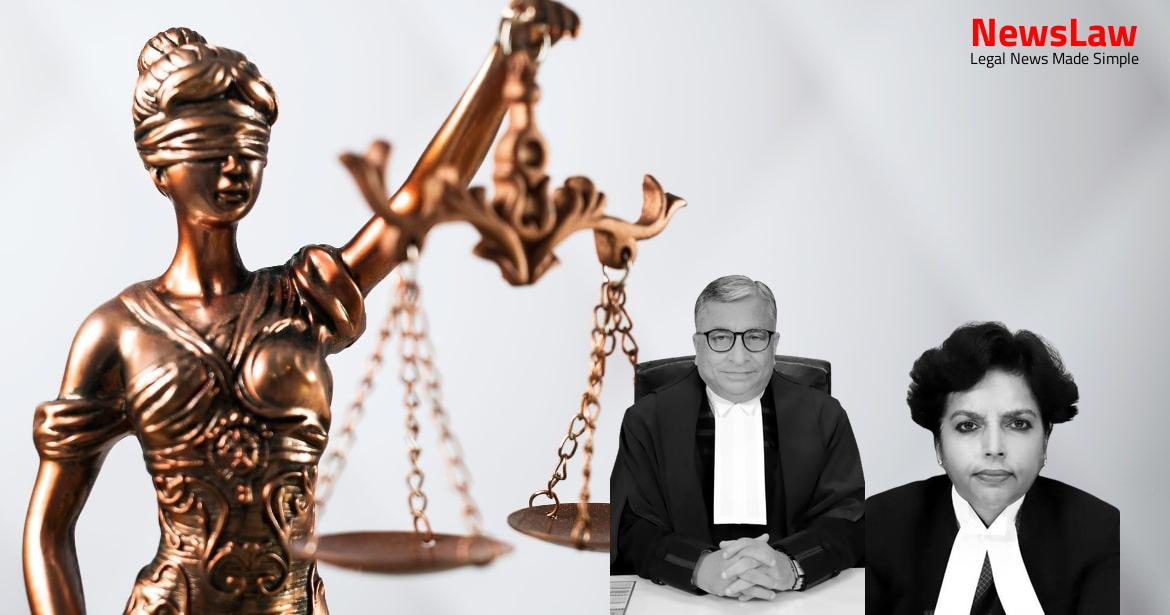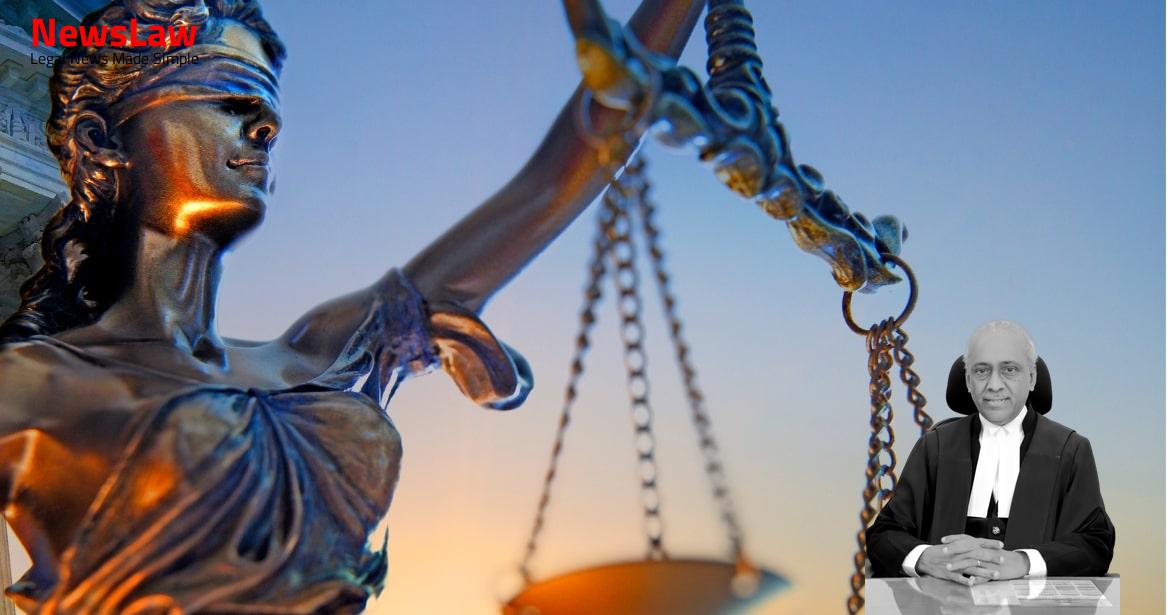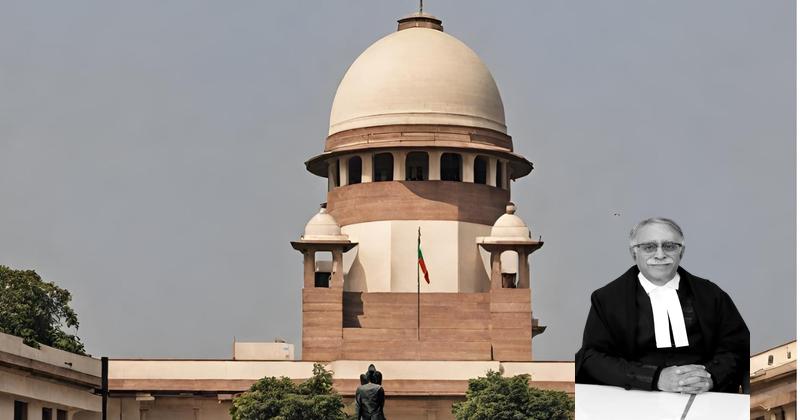The legal landscape surrounding shared intention in defamation cases is a complex terrain that requires careful examination. In a recent judgement, the court delves into the legislative history and evolving legal framework of defamation laws. The focus is on dissecting the implication of collaborative actions among respondents and the concept of mutual understanding or agreement. Stay tuned for a deep dive into the nuanced analysis of shared intention in defamation cases.
Facts
- Respondent no. 5 and 6 tweeted after a press conference by respondent no. 1 to 4.
- Accusation of committing an offence under Section 500 IPC alone for respondent no. 5.
- Petitions under Section 482 of the Code were dismissed by the High Court of Delhi.
- Cases of A-1 and A-5 are not exactly the same – A-1 accused under Section 500 read with Section 34 IPC.
- Learned Additional Chief Metropolitan Magistrate opined that the exhortation by the respondents to share statements and hold a joint conference strengthens the inference of common intention.
- This opinion implicates respondents no. 1, 2, 3, and 4 in a shared intention or collaboration.
- The act of sharing statements and holding joint conferences suggests a mutual understanding or agreement among the respondents.
Also Read: Undisclosed Conviction for Dharna Under Police Act Leads to Overturned Election
Issue
- The key issue at hand is the distinction between individual acts of defamation and acts done with a common intention along with other respondents.
- This distinction is crucial in determining the liability of the respondents in the cases of Shri Manoj Kumar Tiwari and Shri Vijender Gupta.
- The judgement will depend on whether the acts of defamation were done individually or with a shared intention among the respondents.
Also Read: Interpretation of Provisions on Supervisory Duties in Employment Dispute
Arguments
- The learned counsel for the appellants relied upon the decisions of the Court in P.C. Joshi, Subramanian Swamy, and K.K. Mishra to support the argument that a person covered by sub-section (2) of Section 199 must follow the special procedure in sub-section (4) of Section 199.
- It is important to examine the ‘ratio decidendi’ of these cases to understand the basis of the argument made by the counsel.
- The learned Additional Chief Metropolitan Magistrate has held Shri Vijender Gupta (A-5) not liable to be prosecuted for the offence under Section 34 of the IPC.
Also Read: Dismissal from Service for Misconduct: Court Sets Aside High Court’s Order
Analysis
- The judgement delves into the legislative history of Section 199 of the Code of Criminal Procedure, tracing its evolution and the amendments made over the years.
- The recommendation to insert Section 198-B in the Code of Criminal Procedure was discussed in detail, with a focus on the special procedure it provided for cases of defamation against high dignitaries and public servants.
- The Law Commission’s report highlighted the rationale behind Section 198-B, emphasizing the need for a mechanism to protect the reputation of government officials in the face of false allegations.
- The provisions of Section 199(2) and 199(4) were analyzed in relation to the general procedure under Section 199(6), clarifying that the special procedure did not nullify the individual right to prosecute for defamation.
- The impact of subsequent amendments and reports on the Code of Criminal Procedure, such as the Amendment Act of 1955 and the 41st Report of the Law Commission, was discussed in light of the evolving legal framework.
- The judgement also addressed issues of defamation, the necessity of specific allegations to constitute an offense, and the balancing of interests between government officials and individuals invoking legal action.
- Points such as the role of the Public Prosecutor, the importance of following prescribed procedures, and the complexities of defamation cases were examined within the context of the legal provisions.
- Section 198B was proposed to clarify the right of a party aggrieved by defamation to proceed under section 198.
- Section 198B is an additional provision and not intended to take away the right of a person aggrieved.
- The right of an individual against whom defamation was committed to make a complaint before a Magistrate was preserved.
- The new sub-section (13) of Section 198B clarified the right of an individual aggrieved by defamation.
- Section 199 outlines the procedure for prosecution of defamation cases.
- Section 237 provides a safety valve against malicious prosecution or prosecution without reasonable cause.
- Section 198B of the CrPC gives public servants the right to file a complaint for defamation.
- The right to file a complaint under Section 198 for defamation is not impaired by Section 198B.
- Sub-sections (6) to (11) of Section 198B allow for compensation in case of vexatious prosecution.
- The engagement of a public prosecutor in defamation cases involving public servants is criticized for potentially being misused for vengeance.
- Section 198B provides for compensation only against those concerned with the complaint.
- The rationale for the special procedure under Section 199(2) CrPC is that defamation against public servants is viewed as an offence against the State.
- Public prosecutors are expected to apply their discretion and scan materials before filing a complaint for defamation.
- The special procedure under Section 199(2) was introduced to protect the rights of public servants without impairing their individual right to file a case.
- In a specific case, the prosecution was found not maintainable due to lack of connection between the defamatory statements and public duties, and failure of the public prosecutor to apply his mind.
- The statements made by Shri Vijender Gupta in his tweets were not defamatory within the meaning of Section 499 of the IPC.
- Statements such as ‘I will expose you’, ‘I will expose your corrupt practices’, and ‘I will expose the scam in which you are involved’ are not inherently defamatory unless supplemented by additional context or evidence.
- The appeal filed by Shri Vijender Gupta is likely to succeed solely on the ground that the statements in his tweets did not meet the criteria for defamation under Section 499 of the IPC.
Decision
- The complaint against Shri Vijender Gupta (A-5) is set aside.
- The complaint may proceed against other accused.
- The appeal arising from S.L.P. (Criminal) No.658 of 2021 is allowed, and the summoning order dated 28.11.2019 is dismissed.
- The appeal arising from S.L.P. (Criminal) No.351 of 2021 filed by Shri Manoj Kumar Tiwari is dismissed.
- Pending application(s) are disposed of accordingly.
Case Title: MANOJ KUMAR TIWARI Vs. MANISH SISODIA (2022 INSC 1104)
Case Number: Crl.A. No.-001791-001791 / 2022



